Media Literacy
Web Series
Watch our five part web series and become an expert on media literacy!
Part One: What Is Media Literacy?
Join us on our journey to discovering trustworthy and unbiased information sources!
Part Two: The History of Disinformation
"Fake news" may be a relatively new phrase, but disinformation has been around for a long time.
Part Three: How Disinformation Works
Lies, Truths, and Bots, oh my! Peddlers of disinformation are tricky. Learn how to spot potentially fraudulent information.
Part Four: Basics of Journalism & Standards of Reporting
Let's talk about what to look for in a trustworthy news source.
Part Five: Media Literacy Toolkit
Fraudulent news is no match for you now! Build your media literacy toolkit with these steps and helpful websites.
Resources
PEN America
Truth on the Ballot: Fraudulent News, the Midterm Elections, and Prospects for 2020.
Oxford Internet Institute
The Project on Computational Propaganda
PEN America
Knowing The News: A Media Literacy Project
PEN America
Media Consumption Survey.
Google Help
Find related images with reverse image search
dRevEye
Download this Reverse Image Search tool for Google Chrome
Allsides.com
Information and ideas from all sides of the political spectrum
FactCheck.org
A nonpartisan, nonprofit “consumer advocate” for voters that aims to reduce the level of deception and confusion in U.S. politics
Politifact.com
Giving citizens the information they need to govern themselves in a democracy
ReportersLab Fact-Check Map
A center for journalism research in the Sanford School of Public Policy at Duke University with an interactive map
NewsGuard
Coronavirus Misinformation Tracking Center
First Draft
Learn more about verifying media, and download their Photo and Video Visual Verification Guides
Want To Learn More?
Stop by the Library
We can help you find additional resources on the history of journalism, media literacy, and more!
